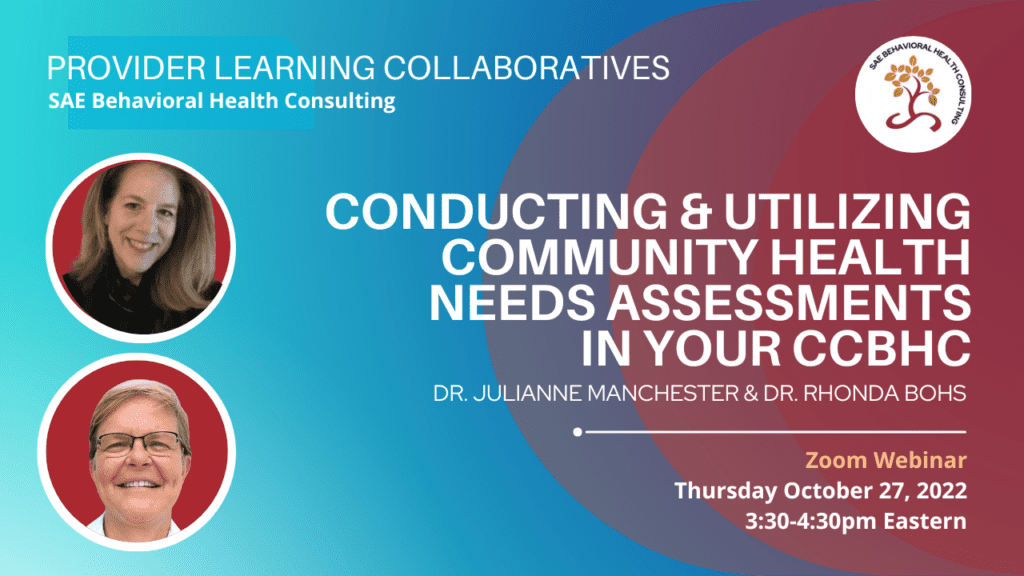Conducting and Utilizing Community Health Needs Assessments in your CCBHC – SAE Provider Learning Collaborative
In addition to identifying priority health needs and aligning partners and resources to address community needs, CHNAs are a vital tool for informing population health management. Your CHNA will provide valuable data to direct resources toward high-risk populations, identify opportunities to enhance care delivery, inform patient engagement initiatives, and direct overall strategic planning.
In this webinar, SAE experts Dr. Julianne Manchester and Dr. Rhonda Bohs discuss ways to carry out a CHNA to bring more value to your community and your organization.
Learn how to use a CHNA to inform population health management initiatives and on the intersection between community health needs and care delivery.
LEARNING OBJECTIVES:





Can’t make it live? Register to ensure you receive a link to video after the event.


